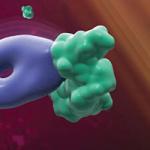
Research Topics
The long-term goal of the Molecular Neuropharmacology Section is the characterization of neurotransmitter receptor-mediated information transduction, and its regulation, across neuronal membranes. The primary model systems under investigation are those neurotransmitter receptors that are linked to their signal transduction pathways via guanine nucleotide binding regulatory (G) proteins with specific emphasis on dopamine receptor subtypes. Specific G proteins have been shown to link these receptors to the activation and inhibition of various nucleotide cyclases, phospholipases, and several ion channels. In order to characterize these receptors at the biochemical and molecular levels and study their regulation, there are several ongoing interrelated lines of research. Such projects include investigating receptor structure/function/pharmacology relationships, receptor-effector coupling mechanisms, G protein and beta-arrestin interactions, and molecular mechanisms of receptor desensitization and intracellular trafficking. We are also interested in using high throughput screening approaches to develop novel ligands for modulating dopamine receptor expression and signaling. Novel modulator compounds have been identified for D1, D2, and D3 receptor subtypes and are in various stages of development into drug candidates. These compounds may prove useful for novel pharmacological therapies for treating numerous neurological and psychiatric disorders associated with aberrant dopaminergic signaling.
Biography
Selected Publications
- Free RB, Nilson AN, Boldizsar NM, Doyle TB, Rodriguiz RM, Pogorelov VM, Machino M, Lee KH, Bertz JW, Xu J, Lim HD, Dulcey AE, Mach RH, Woods JH, Lane JR, Shi L, Marugan JJ, Wetsel WC, Sibley DR. Identification and Characterization of ML321: A Novel and Highly Selective D(2) Dopamine Receptor Antagonist with Efficacy in Animal Models That Predict Atypical Antipsychotic Activity. ACS Pharmacol Transl Sci. 2023;6(1):151-170.
- Sánchez-Soto M, Boldizsar NM, Schardien KA, Madaras NS, Willette BKA, Inbody LR, Dasaro C, Moritz AE, Drube J, Haider RS, Free RB, Hoffman C, Sibley DR. G Protein-Coupled Receptor Kinase 2 Selectively Enhances β-Arrestin Recruitment to the D(2) Dopamine Receptor through Mechanisms That Are Independent of Receptor Phosphorylation. Biomolecules. 2023;13(10).
- Sanchez-Soto M, Verma RK, Willette BKA, Gonye EC, Moore AM, Moritz AE, Boateng CA, Yano H, Free RB, Shi L, Sibley DR. A structural basis for how ligand binding site changes can allosterically regulate GPCR signaling and engender functional selectivity. Sci Signal. 2020;13(617).
- Moritz AE, Free RB, Weiner WS, Akano EO, Gandhi D, Abramyan A, Keck TM, Ferrer M, Hu X, Southall N, Steiner J, Aubé J, Shi L, Frankowski KJ, Sibley DR. Discovery, Optimization, and Characterization of ML417: A Novel and Highly Selective D(3) Dopamine Receptor Agonist. J Med Chem. 2020;63(10):5526-5567.
Related Scientific Focus Areas





Molecular Biology and Biochemistry
View additional Principal Investigators in Molecular Biology and Biochemistry
This page was last updated on Monday, January 12, 2026